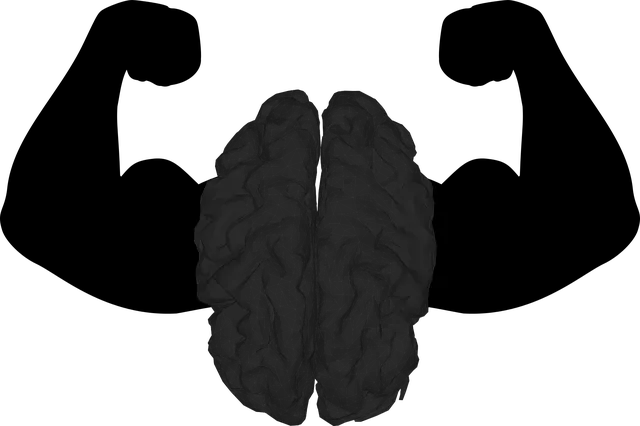Lakewood Kaiser Permanente's psychiatry reviews emphasize crisis intervention strategies as vital for mental health care. These include assessing risk factors, understanding cultural backgrounds, and providing tailored interventions. The psychiatric department offers holistic techniques like mindfulness and conflict resolution to reduce stress, promote resilience, and build trust. As highlighted in the reviews, structured steps from active listening to aftercare ensure effective support during acute crises and long-term mental health management.
“In times of crisis, effective intervention can make a profound difference. This article provides an in-depth guide to crisis intervention strategies, drawing insights from the expert practices at Lakewood Kaiser Permanente, renowned for its psychiatric care. We explore ‘Understanding Crisis Intervention’ and its comprehensive approach, delving into the critical role of psychiatry in emergency situations. Additionally, we offer a step-by-step implementation strategy for healthcare professionals, based on the success stories from Lakewood Kaiser Permanente psychiatry reviews.”
- Understanding Crisis Intervention: A Comprehensive Approach
- The Role of Psychiatry in Emergency Situations at Lakewood Kaiser Permanente
- Implementing Effective Strategies: A Step-by-Step Guide for Healthcare Professionals
Understanding Crisis Intervention: A Comprehensive Approach

Crisis intervention strategies are a vital component of mental health care, as they aim to provide immediate and effective support during times of severe distress or traumatic events. At Lakewood Kaiser Permanente, psychiatry reviews highlight the importance of a comprehensive approach to crisis intervention, where healthcare providers play a pivotal role in stabilizing individuals and preventing further deterioration.
A successful crisis intervention involves not just addressing the immediate symptoms but also understanding the underlying factors contributing to the crisis. This includes assessing risk factors, such as suicidal ideation or self-harm, while considering cultural aspects and providing culturally competent care. Healthcare Provider Cultural Competency Training equips professionals with the skills to navigate diverse backgrounds, ensuring that interventions are tailored to meet individual needs. By incorporating Stress Management techniques and Conflict Resolution Techniques, providers can foster a safe environment, build trust, and guide individuals towards resolution, ultimately enhancing their ability to cope with future challenges.
The Role of Psychiatry in Emergency Situations at Lakewood Kaiser Permanente

When faced with emergency situations, the role of psychiatry at Lakewood Kaiser Permanente becomes invaluable. The team of psychiatric professionals at this healthcare facility is equipped to provide crisis intervention strategies that go beyond traditional medical care. They offer a holistic approach, recognizing the profound impact of mental health on overall wellness. This comprehensive guidance extends to various techniques such as mindfulness meditation and mental wellness journaling exercises, which have been shown to reduce stress and promote emotional resilience during turbulent times.
In addition to these practices, the psychiatry department at Lakewood Kaiser Permanente integrates conflict resolution techniques into their emergency response protocols. By fostering open communication and understanding, they aim to de-escalate tense situations and create a supportive environment. These strategies not only benefit individuals in acute crisis but also contribute to long-term mental health management, ensuring that patients receive the comprehensive care they need in a challenging setting, as evidenced by numerous positive Lakewood Kaiser Permanente psychiatry reviews.
Implementing Effective Strategies: A Step-by-Step Guide for Healthcare Professionals

Implementing effective crisis intervention strategies is a critical skill for healthcare professionals, especially those in psychiatry, as evidenced by Lakewood Kaiser Permanente psychiatry reviews. It’s not just about responding to acute situations; it’s a foundation for fostering long-term mental wellness. A structured, step-by-step guide can help navigate these challenging scenarios effectively.
The process begins with assessment: actively listening to the individual’s distress and gathering relevant information. This is followed by creating a safe space, both physically and emotionally, crucial elements highlighted in Cultural Sensitivity in Mental Healthcare Practice. Once a basic level of security is established, professionals should engage in active empathy, validating the person’s feelings while providing support. The next step involves developing a concrete plan tailored to the individual’s needs, potentially incorporating Mental Wellness Coaching Programs Development techniques. Finally, follow-up and aftercare are vital; ensuring continuity of care and monitoring progress, as seen in successful Mental Wellness Podcast Series Production.
Crisis intervention strategies are a vital component of healthcare, especially in emergency settings like Lakewood Kaiser Permanente. As outlined in this article, understanding crisis intervention involves a comprehensive approach that integrates professional guidance and compassionate care. The case study on the role of psychiatry in emergency situations at Lakewood Kaiser Permanente highlights the importance of specialized mental health support during crises. By following the step-by-step guide for healthcare professionals, as suggested by expert reviews of Lakewood Kaiser Permanente psychiatry services, we can enhance our ability to implement effective crisis intervention strategies and ultimately improve patient outcomes.






